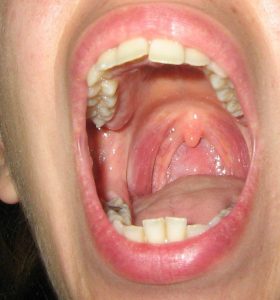 Have you ever wondered what happens while you sleep? It's simple really: your brain cells replenish, your body grows and your mental state resets for the day ahead. There are recommended hours of sleep for specific age groups for a reason. The younger you are the more your body needs to develop and therefore the more sleep you need. Ignoring your sleep, like most teenagers and young adults do, can impact your health in ways you probably haven't thought about before.
Have you ever wondered what happens while you sleep? It's simple really: your brain cells replenish, your body grows and your mental state resets for the day ahead. There are recommended hours of sleep for specific age groups for a reason. The younger you are the more your body needs to develop and therefore the more sleep you need. Ignoring your sleep, like most teenagers and young adults do, can impact your health in ways you probably haven't thought about before.
There are various disorders that can affect your sleep like insomnia, sleep apnea and snoring but did you know sleeplessness can severely impact those suffering from depression? Depression on it's own can be a debilitating illness. Couple that with sleeplessness and you're facing a huge wall:
The link between sleep problems and suicidal thoughts and behaviors is made starkly clear in new research from The University of Manchester, published in the BMJ Open.
In this study, conducted by researchers from the University's School of Health Sciences alongside the University of Oxford, 18 participants were interviewed about the role sleep problems have on suicidal tendencies.
Three inter-related pathways to suicidal thoughts were identified arising from sleep problems. The first was that being awake at night heightened the risks of suicidal thoughts and attempts, which in part was seen as a consequence of the lack of help or resources available at night.
Secondly, the research found that a prolonged failure to achieve a good night's sleep made life harder for respondents, adding to depression, as well as increasing negative thinking, attention difficulties and inactivity.
Finally, respondents said sleep acted as an alternative to suicide, providing an escape from their problems. However, the desire to use sleep as an avoidance tactic led to increased day time sleeping which in turn caused disturbed sleeping patterns - reinforcing the first two pathways.
If you or someone you know suffers from depression you are most likely painfully aware of how difficult it can be to lead a normal life. There are plenty of treatments available, with or without medication, that can make depression manageable. But it's difficult to completely get rid of it. When your enemy is your own mind it's very difficult to win the war.
When you can't sleep, you can't quiet your mind. The dark thoughts tend to plague you in the night when you're defenseless. Human beings are not meant to be nocturnal. We're meant to sleep in the night and be productive in the day. Failure to adhere to this causes disruptions in our sleep patterns and makes it difficult to function as a member of society.
That is not to say that those who work strictly at night aren't productive. Those who work during the night tend to sleep during the day for the recommended number of hours they are supposed to be getting. That's completely different than someone who sporadically sleeps during the day in order to recover from the loss of sleep during the night.
Those who suffer from depression need to make sure they are sleeping properly. It may help to keep a sleep journal and log the amount of time, and when, they are actually sleeping and take it to their health care provider. If their sleep is too fragmented their health care provider can suggest other ways to obtain a consistent amount of sleep. What is the underlying sleep problem? Does the patient suffer from sleep apnea or snoring? There are simple ways to manage those disorders. The more information you can bring in with you to a medical appointment the better your health care provider can help you.
Let's all try to get the best sleep we can to keep the dark thoughts at bay.
The following article Suicidal Thoughts and Sleep Problems: A Deadly Combination See more on: TSMR
source http://snoringmouthpiecereview.org/sleep-health/suicidal-thoughts-and-sleep-problems-a-deadly-combination
 Depending on what stage of life you’re at you might be thinking that it’s not a big deal if you sacrifice your sleep to get ahead in life. Sure, you can live on four hours of sleep a night so that you can make sure you watch all the episodes of that popular show on Netflix or work the three jobs to afford your fancy car. Our minds like to tell us all kinds of things and sometimes we shouldn’t listen to them. Is your brain a medical professional? Probably not. You might like to think you are because of your personal connections or what you read online but unless you went through grueling medical school, you probably aren’t a doctor or nurse.
Depending on what stage of life you’re at you might be thinking that it’s not a big deal if you sacrifice your sleep to get ahead in life. Sure, you can live on four hours of sleep a night so that you can make sure you watch all the episodes of that popular show on Netflix or work the three jobs to afford your fancy car. Our minds like to tell us all kinds of things and sometimes we shouldn’t listen to them. Is your brain a medical professional? Probably not. You might like to think you are because of your personal connections or what you read online but unless you went through grueling medical school, you probably aren’t a doctor or nurse. Snoring is a common sleep disorder although many just brush it off. Some people think snoring is caused solely by eating or drinking too much before bed, sleeping on your back or being sick. While these can contribute to snoring, the fact of the matter is that there are physical components of snoring. While you sleep your whole body relaxes, right? The means more than just your mind; your muscles relax as well. When the muscles in your mouth and throat relax they can cause your tongue to fall to the back of your throat and block your airways.
Snoring is a common sleep disorder although many just brush it off. Some people think snoring is caused solely by eating or drinking too much before bed, sleeping on your back or being sick. While these can contribute to snoring, the fact of the matter is that there are physical components of snoring. While you sleep your whole body relaxes, right? The means more than just your mind; your muscles relax as well. When the muscles in your mouth and throat relax they can cause your tongue to fall to the back of your throat and block your airways. Surely you remember the prime of your youth: staying up until 3am working on that final paper for your course or playing video games until midnight. As we get older our bedtimes tend to creep ever forward. We have more stresses in our lives and therefore need more time to recuperate from the long days we sludge through. But having an early bedtime could be a massive warning sign, especially for men:
Surely you remember the prime of your youth: staying up until 3am working on that final paper for your course or playing video games until midnight. As we get older our bedtimes tend to creep ever forward. We have more stresses in our lives and therefore need more time to recuperate from the long days we sludge through. But having an early bedtime could be a massive warning sign, especially for men: It’s the time of year again. Students are swarming schools all over the country from kindergarten all the way to university and college. It’s back to school and that means a more regimented schedule should be implemented for everything. This includes parents as well as students. For those who are finding themselves in post-secondary for the first time might have a harder time trying to control themselves. Safeguards, like parents, might not be there and the newfound sense of independence and freedom could very well be their undoing.
It’s the time of year again. Students are swarming schools all over the country from kindergarten all the way to university and college. It’s back to school and that means a more regimented schedule should be implemented for everything. This includes parents as well as students. For those who are finding themselves in post-secondary for the first time might have a harder time trying to control themselves. Safeguards, like parents, might not be there and the newfound sense of independence and freedom could very well be their undoing. Sleep is a precious commodity that we all need in order to survive. During sleep is when our bodies grow, our brain cells replenish and our emotions reset. Regardless of age everyone needs to get a good night's sleep. There is a reason that children need to sleep more when they're very young: they're growing and without sleep those little bodies can't get much bigger.
Sleep is a precious commodity that we all need in order to survive. During sleep is when our bodies grow, our brain cells replenish and our emotions reset. Regardless of age everyone needs to get a good night's sleep. There is a reason that children need to sleep more when they're very young: they're growing and without sleep those little bodies can't get much bigger. In order to be ready to put in those long hours either during your commute or at the office you need to make sure you're getting a good night's sleep. There are several variables that will impact your sleep health: your stress level, whether or not you consume drugs or alcohol before sleep and your overall
In order to be ready to put in those long hours either during your commute or at the office you need to make sure you're getting a good night's sleep. There are several variables that will impact your sleep health: your stress level, whether or not you consume drugs or alcohol before sleep and your overall 